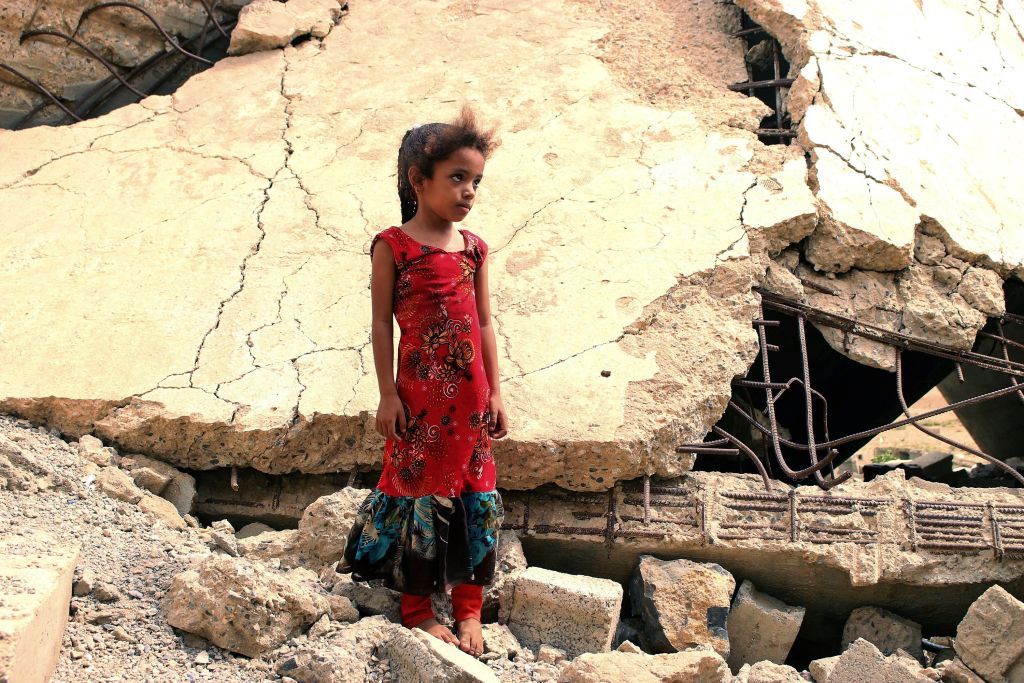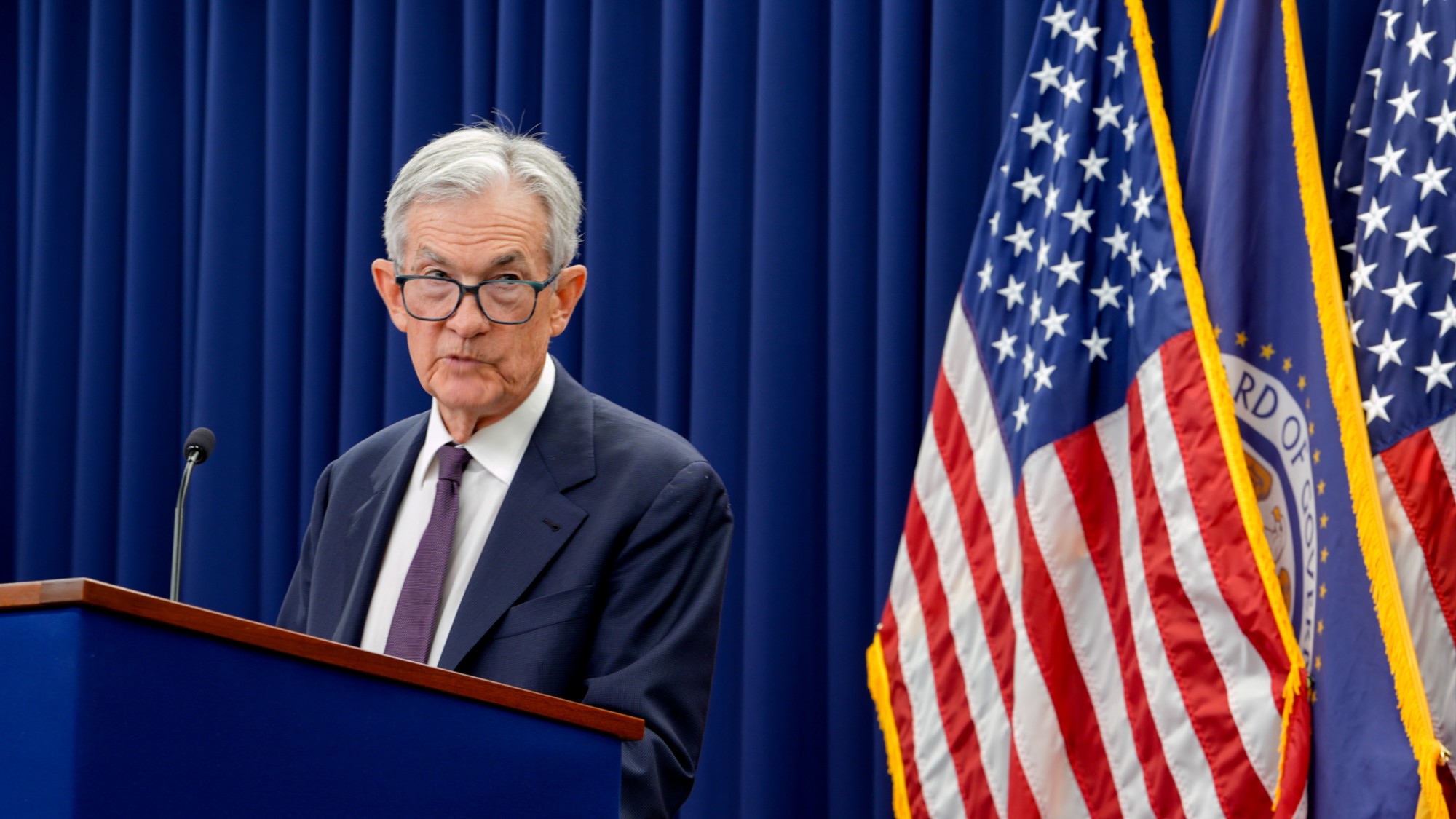With half of Yemen's population going hungry, drop in humanitarian aid is 'a death sentence'


A free daily email with the biggest news stories of the day – and the best features from TheWeek.com
You are now subscribed
Your newsletter sign-up was successful
In war-torn Yemen, humanitarian agencies believe that 400,000 children under five are at risk of dying from malnutrition.
In Shabwa province, the number of serious cases of malnutrition increased 10 percent in 2020, and in the town of Abs, serious cases rose 41 percent, The Guardian's Middle East correspondent Bethan McKernan reports. It is estimated that 16 million people, half of Yemen's entire population, are going hungry.
Civil war broke out in Yemen six years ago, with Houthi rebels fighting the Yemeni government. Now, it's also a proxy war between Iran, which backs the Houthis, and Saudi Arabia, which leads a coalition that supports the government. Tens of thousands of Yemenis have been killed or injured in the fighting, and with malnutrition, cholera, coronavirus, and dengue fever running rampant, the United Nations says Yemen is experiencing the world's worst humanitarian crisis. One doctor that McKernan spoke to said he fears Yemen is losing an entire generation to war, especially as boys as young as 11 are being recruited to fight and girls under 14 are being married off.
The Week
Escape your echo chamber. Get the facts behind the news, plus analysis from multiple perspectives.

Sign up for The Week's Free Newsletters
From our morning news briefing to a weekly Good News Newsletter, get the best of The Week delivered directly to your inbox.
From our morning news briefing to a weekly Good News Newsletter, get the best of The Week delivered directly to your inbox.
The UN is having a hard time raising enough money for 2021 humanitarian efforts, as several countries aren't donating as much as in years past. The United Kingdom, which supports the Saudi-led coalition, is cutting its aid in half, and this is essentially a "death sentence" for people in Yemen, UN Secretary-General António Guterres said in a statement. Read more about the crisis in Yemen at The Guardian.
A free daily email with the biggest news stories of the day – and the best features from TheWeek.com
Catherine Garcia has worked as a senior writer at The Week since 2014. Her writing and reporting have appeared in Entertainment Weekly, The New York Times, Wirecutter, NBC News and "The Book of Jezebel," among others. She's a graduate of the University of Redlands and the Columbia University Graduate School of Journalism.
-
 American universities are losing ground to their foreign counterparts
American universities are losing ground to their foreign counterpartsThe Explainer While Harvard is still near the top, other colleges have slipped
-
 How to navigate dating apps to find ‘the one’
How to navigate dating apps to find ‘the one’The Week Recommends Put an end to endless swiping and make real romantic connections
-
 Elon Musk’s pivot from Mars to the moon
Elon Musk’s pivot from Mars to the moonIn the Spotlight SpaceX shifts focus with IPO approaching
-
 Judge rejects California’s ICE mask ban, OKs ID law
Judge rejects California’s ICE mask ban, OKs ID lawSpeed Read Federal law enforcement agents can wear masks but must display clear identification
-
 Lawmakers say Epstein files implicate 6 more men
Lawmakers say Epstein files implicate 6 more menSpeed Read The Trump department apparently blacked out the names of several people who should have been identified
-
 Japan’s Takaichi cements power with snap election win
Japan’s Takaichi cements power with snap election winSpeed Read President Donald Trump congratulated the conservative prime minister
-
 Trump sues IRS for $10B over tax record leaks
Trump sues IRS for $10B over tax record leaksSpeed Read The president is claiming ‘reputational and financial harm’ from leaks of his tax information between 2018 and 2020
-
 Trump, Senate Democrats reach DHS funding deal
Trump, Senate Democrats reach DHS funding dealSpeed Read The deal will fund most of the government through September and the Department of Homeland Security for two weeks
-
 Fed holds rates steady, bucking Trump pressure
Fed holds rates steady, bucking Trump pressureSpeed Read The Federal Reserve voted to keep its benchmark interest rate unchanged
-
 Judge slams ICE violations amid growing backlash
Judge slams ICE violations amid growing backlashSpeed Read ‘ICE is not a law unto itself,’ said a federal judge after the agency violated at least 96 court orders
-
 Rep. Ilhan Omar attacked with unknown liquid
Rep. Ilhan Omar attacked with unknown liquidSpeed Read This ‘small agitator isn’t going to intimidate me from doing my work’
